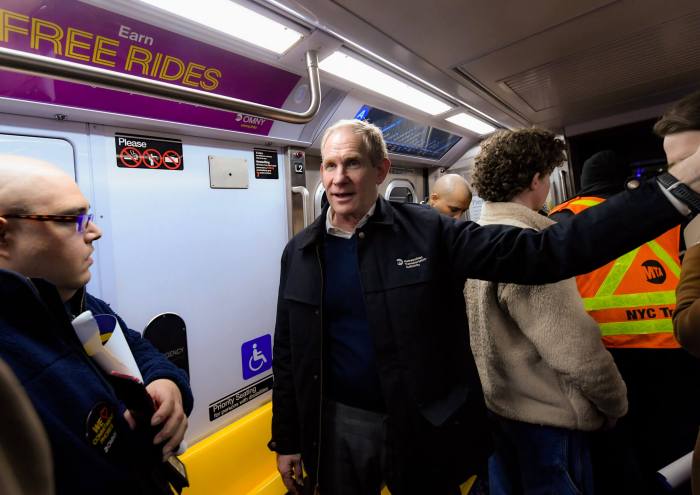Citi Bike had a hard time living up to its contract with the city during a shaky first year that included failures to maintain and check equipment and keep its system fully connected with stations, an audit released Friday by city Comptroller Scott Stringer found.
In the months following its May 2013 launch, Citi Bike’s record worsened as 16 inspectors were laid off in the slow winter months, checks of bikes in the field were discontinued and software problems mounted.
Citi Bike’s inspection rate dropped to 24% in December 2013 from 83% the previous July, according to an audit of a 25-bike sample during that period. In those six months, Citi Bike did 84 of 141 required bike checks in the sample. Still, Citi Bike improved this year with on-street checks resuming in April, bringing its inspection rate up 73% that month.
For docking stations that must get checked twice a week, the audit’s look at a sample of 29 docks found that 79%, of required inspections were made in February, according to the report.
“New York City Bike Share’s management of Citi Bike left too many New Yorkers in the lurch,” Stringer said in a statement.
Stringer’s report also criticized the city’s Department of Transportation for having lax oversight of Citi Bike and failing to routinely follow up on bike share’s self-reported performance. The DOT, however, disagreed with Stringer’s suggestions.
“DOT has continually monitored [New York City Bike Share’s] maintenance of its equipment … since the inception of the program,” DOT auditor general Amy Hutner wrote in response.
Citi Bike’s woes were more glaring in light of its popularity, with more than 100,000 annual members. But the high point for annual members dropped to 93,184 members as of August, according to its most recent monthly report.
The data in Stringer’s audit was pulled from a time before an overhaul of Citi Bike’s operations was announced in October.
The changers were made in preparation of an expansion into new Queens, Brooklyn and Manhattan neighborhoods over the next few years.
Citi Bike officials quoted in the report generally agreed with Stringer’s findings and recommendations, blaming bad software and financial woes of its parent company Alta for the spotty service.
“We agree that while Citi Bike has been hugely popular with New Yorkers, the previous ownership of the company was not able to provide the resources necessary to deliver on its potential,” said Jay Walder, the new CEO of Alta and a former transit executive in New York, London and Hong Kong. “With new ownership and an experienced management team being put in place, we are already beginning the hard work of reinventing Citi Bike. “

















